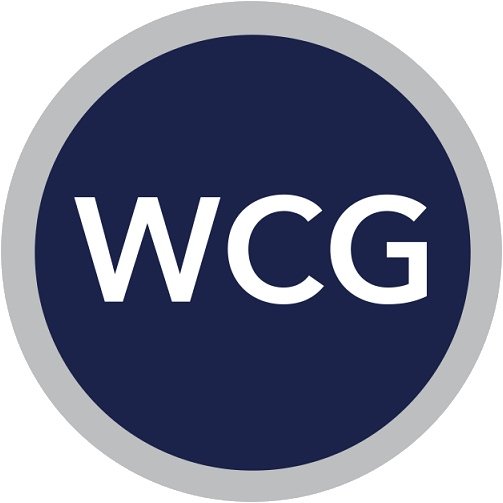Teamwork Makes the Dreamwork! How to Effectively Demonstrate Teamwork Skills in the Job Search Process
The Value of Collaboration in the Workplace
Regardless of industry, teamwork skills are frequently a must-have. Employers are often looking for individuals with a collaborative nature and strong sense of team spirit. You likely already have considerable experience with teams, even if you’re early in your career. Teams are an integral part of our society: from sports to various clubs and groups, and obviously, teams at work.
Some of my greatest career moments have been in collaboration with others, or in leading teams to accomplish a shared goal. I’ve also experienced challenges with teamwork, plagued by colleagues who drag their feet, leaders with inadequate leadership skills, and conflict from vastly different opinions.
One of the best pieces of life advice I’ve ever been given is to take everything as a learning experience. Good or bad, every opportunity is just that…an opportunity! Reflecting on our successes or failures allows you to gain self-awareness on your strengths, identify areas of needed growth, and become a more effective team member or leader.
As teamwork is also a soft skill (and a top-rated skill by most employers), it’s imperative to learn how to convey not just that you are a team player but demonstrate how you have been a team player.
Image by RAEng_Publications from Pixabay
The Power of Soft Skills
It’s no secret that soft skills, how you work and interact with others, are important to employers. A whopping 73% of top executives value soft skills over job-specific skills, and 44% feel soft skills represent a substantial skill gap (Queens University of Charlotte, 2023).
But simply listing soft skills such as teamwork or collaboration on your resume or saying, “I’m a great team player!” in your interview isn’t enough. In working with clients from a variety of industries and at all levels of professionalism, people often struggle to describe their experiences and strengths both orally and on paper.
Continue reading if you want to learn to better convey your soft skills throughout the job application and interview process, and how The Wilbanks Consulting Group offers key services that ensure your unique skillset is communicated effectively.
Showcasing Your Teamwork Skills
Resume/CV. Your resume is an excellent opportunity to truly highlight your skills and demonstrate to recruiters how you’ve been effective throughout your career history. Just listing skills isn’t enough, as it doesn’t provide any context for readers. Instead, incorporate soft skills into bullet points, pairing them with data if possible. Here is an example:
Led team of twelve employees on strategic planning, development, and delivery of ten marketing campaigns, resulting in 30% annual revenue increase.
Review your current resume and identify opportunities to expand information. If you’ve led teams, what was the result of your leadership? If you collaborated with colleagues to achieve a certain task, what steps did you take to ensure success? And do you have any quantifiable information to add, including team size, number of projects, revenue growth, an increase in customer engagement, etc.
Also consider the benefits of working with The Wilbanks Consulting Group to optimize your resume. After an initial consultation, our experts can design and tailor your resume to best communicate your accomplishments, skills, and experience. It isn’t easy to describe ourselves; allow one of our professionals to do the hard work for you!
Image by Biljana Jovanovic from Pixabay
LinkedIn. Social media is another great tool that can demonstrate your soft skills. LinkedIn is the world’s largest professional network, affording you the ability to build your personal brand, connect with recruiters, research companies, and communicate to others who you are as a professional. There are several key places to include soft skills:
Summary. This is a place to tell your story, highlight core skills, and share how you’ve been effective in your respective industry. Use this space to demonstrate your most impactful career achievements; incorporate soft skills with hard skills and include quantifiable information when possible.
Experience. Typically, the experience section mirrors information in your resume. You should include job-specific achievements, but you can also further expand if needed. Resumes can be limited by space, but the LinkedIn Experience section can be used to include additional information.
Skills Section. LinkedIn allows you to list up to 50 skills and highlights your top 10, enabling recruiters and employers to quickly identify your unique skillset. It is also used as a recruiting tool, with companies using the information to connect with potential employees with their most in-demand skills.
Navigating LinkedIn and constructing a professional presence on the platform can be a somewhat lengthy process, but as one of the main tools for recruiters, it’s incredibly beneficial to job seekers. The Wilbanks Consulting Group offers LinkedIn profile revisions, profile construction, and recommendations to optimize your experience. Our team members are experts in building influential profiles that help you stand out and speak to the professional you are.
Cover Letter. Your cover letter is another place to feature soft skills that a potential employer may be seeking. Beyond simply listing achievements, this is an excellent opportunity to share about a time you’ve successfully collaborated or led a team.
Again, consider what the company is seeking, and how your skillset answers it. If a job description lists “cross-functional team leadership” or “collaboration-focused” as requirements, do your employment documents demonstrate mastery in these areas?
If not, The Wilbanks Consulting Group can help. It can be difficult to take years of experience, and translate it into a few paragraphs that speak to your abilities. We offer cover letter writing services tailored to the target position, eliminating the guesswork as you navigate your job search.
Image by Corinne Kutz on Unsplash
Interview. Tell me about a time when you had to lead a team. Share an example of a team project that failed. How do you feel about working on a team? If you’ve had job interviews, it’s likely you’ve been asked questions about your teamwork skills. Recruiters are looking to understand how you’ll perform on the job, by soliciting real-world examples from previous work experience. Consider the following anecdotes to share with a hiring manager:
Use the STAR method in responding to questions during interviews. STAR stands for situation, task, action, and result. This method acts as a simple guide to help you provide effective responses that demonstrate your role in succeeding at a task.
Try to use recent examples, unless an older achievement is particularly impressive.
Practice, practice, practice! Review your resume and consider making a list of shareable experiences. This is a great way to identify stories that not only showcase teamwork skills, but also highlight other talents a hiring manager may be seeking.
Interviews can be challenging for any professional. Our experts at The Wilbanks Consulting Group offer tailored interview preparation services, including mock interviews and detailed feedback, aimed to best prepare you and have you feeling confident in your interview skills.
Photo by Christina @ wocintechchat.com on Unsplash
Need help? The Wilbanks Consulting Group is Here for You.
Translating skills into the job application and interview process can be difficult. Let the experts at The Wilbanks Consulting Group partner with you to optimize your resume, cover letter, LinkedIn profile, and interview skills. Reach out to us today to connect with one of our experts for a free 30-minute consultation!







